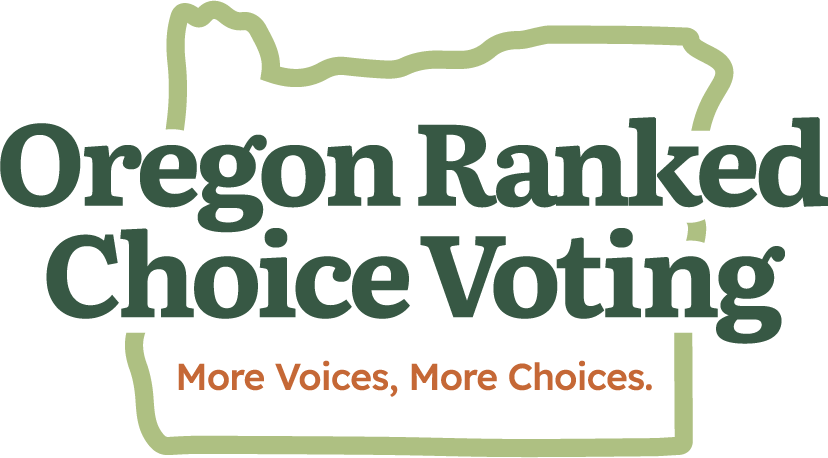Oregon Legislature Refers HB 2004, Statewide Ranked Choice Voting Measure, to the 2024 Ballot
The measure allows voters to rank candidates in order of preference in federal and statewide elections; ensures candidates are elected with more than 50% of the vote.
[Salem, Oregon] - Today, the Oregon Legislature passed House Bill 2004, which puts ranked choice voting for federal and statewide races on Oregon voters’ November 2024 ballots. Cities and states across the country have been rapidly adopting ranked choice voting via citizen-driven ballot measures, but Oregon’s legislature is the first in the nation to proactively move this popular reform forward.
“We are overjoyed that our state lawmakers passed HB 2004 to provide the opportunity for Oregonians to make a meaningful choice about the future of their democracy,” said Sol Mora, HB 2004 Coalition Leader, and Advocacy Director at the Coalition of Communities of Color. “We know that Oregon voters are frustrated. Ranked choice voting is a simple improvement that will help focus campaigns on the issues and give voters more options to elect their true favorites. Candidates will also benefit from ranked choice voting by being able to run without fear of splitting the vote, which will help more youth, people of color, working-class people, and candidates from rural communities get elected.”
HB 2004 was sponsored by Speaker Dan Rayfield, Majority Leader Julie Fahey, Representative Khanh Pham, Senator Janeen Sollman, and many other legislative champions. The legislation is also supported by over 35 community organizations representing thousands of Oregonians from across the state, including the Coalition of Communities of Color, Next Up Action Fund, Urban League of Portland, Rural Organizing Project, SEIU 503 and 49, Oregon AFSCME, AFT-OR, and the League of Women Voters of Oregon.
“Ranked choice voting will give voters more choice, encourage voter engagement, and strengthen our democracy by improving peoples’ perception of elections and election outcomes,” said Speaker Dan Rayfield (HD-16). “House Bill 2004 would make sure people in power are elected by a true 50% majority.”
If approved by voters in the 2024 election, HB 2004 will: establish ranked choice voting for statewide and federal offices in both primary and general elections; establish a “local option” for cities and counties choosing to adopt ranked choice voting; provide local jurisdictions with tools and resources to ensure standardized implementation of ranked choice elections; and create a statewide education campaign to ensure voters across all demographics understand how to use ranked choice ballots.
“Oregon voters deserve options to vote for candidates that align with their values, without worrying about splitting a vote or needing to pick the candidate who has a better chance of winning, whether or not they really support them,” said Representative Khanh Pham during the public hearing in the Senate Committee on Rules. “Oregon has long been a leader in policies that strengthen democracy and expand election accessibility. I see HB 2004 as Oregon’s next step to continue leading the way.”
Ranked choice voting would allow voters to rank candidates in order of preference: first choice, second choice, third choice, and so on. Ballots are counted in rounds. All first-choice votes are tallied. If a candidate receives more than 50% of the first-choice votes, that candidate wins. If no candidate initially gets over 50% of the first-choice votes, then the candidate with the fewest votes is defeated, and ballots are tallied again based on second and third choices. This continues until one candidate receives more than 50% of voters’ preferences.
In Oregon, ranked choice voting is already used in Benton County and Corvallis, was recently adopted by voters in Portland and Multnomah County, and is used statewide in Maine and Alaska - alongside dozens of jurisdictions around the country, from municipalities in Utah to Minneapolis. Over 20 million ranked choice ballots have been cast in the United States in over 500 elections.
After being approved by the Oregon House last month, HB 2004 today passed the Oregon Senate 17-8 and now heads directly to the 2024 ballot.
For the text of House Bill 2004: https://olis.oregonlegislature.gov/liz/2023R1/Measures/Overview/HB2004
For more information about Oregon Ranked Choice Voting: www.oregonrcv.org
For immediate release: June 25, 2023
Contact: Caroline Phillips, caroline [at] oregonrcv [dot] org
